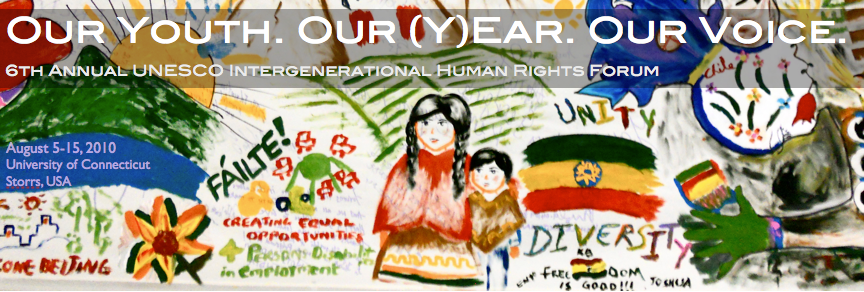On a theoretical level, I understand the agony of hunger; but I have been fortunate that so far in my life, food security has never been an issue for me. As a middle-class American citizen, I have been lucky to always know where my next meal is coming from and how I can access nutritional options.
 |
| Sarah Sontara of FoodShare |
Sarah M. Sontara of FoodShare (www.foodshare.org) spoke to us about the food insecurity situation in Connecticut , but the takeaway extends far beyond the state or the USA
I was given the role of a single father raising three children, who has only $7 a day left over after paying for rent, utilities, a car, etc. I was ineligible for SNAP, and the social services office was always either closed or unhelpful. But I was one of the lucky ones: others were undocumented, and thus they could not even attempt to access social services for fear of deportation. Snagged in the bureaucracy, hardly any of us were able to afford food that was sufficiently nutritious and substantive enough to feed our families.
The lesson was powerful on several levels. It helped all of us empathize with the immense difficulty of hunger, and to better understand the tangled web of social services. But it also struck me on a more personal level. In a few weeks, I begin graduate school to be a social worker. But do I really want to enter a field of work where I become the face of a bureaucratic, unhelpful governmental program? Can I really be effective if the system is broken?
Ms Ms. Sontara pointed out, "the social workers are frazzled, too. They handle thousands of cases. They don't have the resources or support they need to handle these situations."
How do we make this happen? Maybe I'll find the answers in my future studies. I am certain that it requires a combination of advocacy, transparency and accountability. I think that other countries have models that the U.S.



Thanks for this post - for me this was hands down the best session at the conference. I really enjoyed the PRACTICAL and ENGAGING way we were presented with this and I do encourage the conference organisers to encourage future speakers to being more INTERACTIVE workshops to the session...well written blog!
ReplyDelete